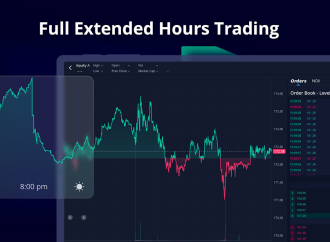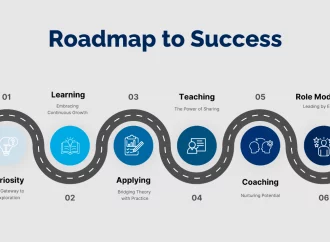Interest rates and real estate prices are two crucial elements that can affect each other in many ways. As an investor or someone who is planning to buy a property, understanding the relationship between these two factors can help you make better decisions. Whether you’re looking to purchase your first home or build a successful
Interest rates and real estate prices are two crucial elements that can affect each other in many ways. As an investor or someone who is planning to buy a property, understanding the relationship between these two factors can help you make better decisions. Whether you’re looking to purchase your first home or build a successful real estate portfolio, there’s much you need to know about how interest rates impact real estate prices. In this article, we’ll explore the essential things you need to understand about how interest rates influence real estate values so that you can stay ahead of the curve and maximize your investments.
How do interest rates affect real estate prices?
In short, higher interest rates make buying a home more expensive. This is because when you take out a mortgage, the interest rate determines how much of your monthly payment will go towards paying off the interest on the loan, rather than the principal of the loan. A higher interest rate means that more of your monthly payment will go towards paying off the interest, which can make it difficult to afford the home you want to purchase.
When mortgage rates rise, so do real estate prices. This is because potential homebuyers are willing to pay more for a home when they know they can get a low interest rate on their mortgage. As interest rates rise, demand for homes usually falls because potential buyers are no longer able to afford as much house. When demand falls, prices usually follow suit.
The current state of interest rates and real estate prices
As most people are aware, interest rates and real estate prices have an inverse relationship – when one goes up, the other goes down.
The current state of interest rates is at a historically low level, which has led to increased demand for housing and a corresponding increase in real estate prices. This trend is expected to continue in the short-term, as there is little chance of interest rates increasing significantly in the near future.
However, it is important to remember that real estate prices are not just influenced by interest rates; other factors such as job security, population growth, and inflation can also have an impact. Therefore, even though interest rates are currently low, this does not guarantee that real estate prices will continue to rise indefinitely.
Historical examples of how changes in interest rates have affected real estate prices
In the United States, interest rates and real estate prices have been linked for centuries. When interest rates are low, real estate prices typically rise as more buyers are able to afford homes; when interest rates are high, real estate prices usually fall as fewer buyers can qualify for loans.
One of the most famous examples of this relationship occurred during the Great Depression of the 1930s. At that time, the Federal Reserve (the central bank of the United States) increased interest rates dramatically in an effort to fight inflation. As a result, home prices fell by about 30% from 1929 to 1933.
More recently, we saw a similar pattern during the “Great Recession” of 2007-2009. Again, the Fed raised interest rates (this time to fight the housing bubble), and home prices subsequently fell by about 30%.
Of course, there have been numerous other periods in which interest rates and home prices have moved in opposite directions. But overall, there is a strong historical correlation between these two variables.
The future of interest rates and real estate prices
It’s no secret that interest rates and real estate prices are closely related. When interest rates go up, home prices usually follow suit. The reason for this is simple: when lenders charge higher interest rates, buyers have to pay more for their mortgages. As a result, they’re willing to pay less for a home.
The same is true when interest rates go down. With lower mortgage payments, buyers have more money to spend on a home, so prices tend to rise.
Of course, there are other factors that affect home prices (such as the economy and job market), but interest rates are one of the most important drivers.
So what does the future hold for interest rates and home prices? Unfortunately, it’s impossible to say for sure. Interest rates could rise or fall in the coming years, and that would have a direct impact on home prices.
However, there are some experts who believe that interest rates will eventually start to rise again (after years of being at historically low levels). If that happens, it’s likely that home prices will start to increase as well.
Tips for buying a home in today’s market
If you’re thinking about buying a home, now is a good time to do it. Interest rates are still relatively low, and there’s a wide selection of homes on the market. However, there are a few things you need to keep in mind when purchasing a home in today’s market.
Here are a few tips for buying a home in today’s market:
1. Get pre-approved for a mortgage: This will give you an idea of how much house you can afford and put you in a better position to negotiate with sellers.
2. Do your research: Be sure to look at multiple listings and compare prices before making an offer on a home.
3. Have realistic expectations: Don’t expect to find your dream home right away. It may take some time and effort to find the perfect property for you and your family.
4. Be prepared to move quickly: If you find a property that you’re interested in, be ready to make an offer as soon as possible. In many cases, properties are selling fast and you don’t want to miss out on your perfect home!
Conclusion
In conclusion, understanding the relationship between interest rates and real estate prices is essential if you are considering entering the real estate market. Although there are other factors to consider when purchasing a home or investing in property, it is important to keep an eye on interest rates as they can have a major impact on your ability to secure financing and ultimately determine how much house you can afford. With this knowledge in mind, you will be able to make more informed decisions about buying or selling property.





















Leave a Comment
Your email address will not be published. Required fields are marked with *